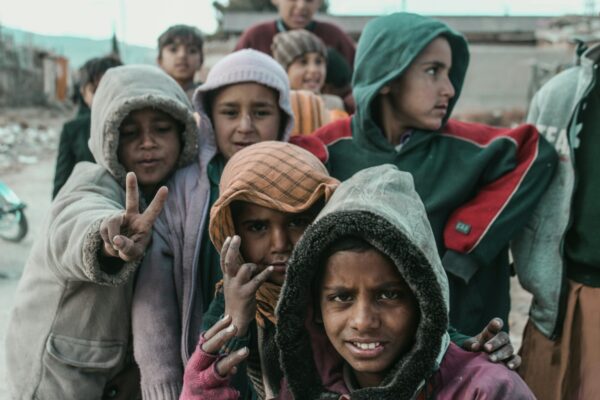Living in the West presents an exclusive set of internal skirmishes. It includes contesting claims of terror and forced oppression and navigating interfaith relations, as well as thoughtfully declining to partake in events, rituals, and movements that do not align with our Islamic values.
Living in the West presents an exclusive set of internal skirmishes. It includes contesting claims of terror and forced oppression and navigating interfaith relations, as well as thoughtfully declining to partake in events, rituals, and movements that do not align with our Islamic values.
As fallible human beings, we all grapple with our internal discord. One’s personal discord is manipulated and decided from a variety of sources. As Muslims living in the West, we are often viewed as foreigners – so the internal spiritual strife that is inherent to our creation is amplified as we struggle to identify our place in this multifarious and politically charged society.
Day after day, we are inundated with disquieting headlines. World leaders such as Trump, India’s Modi, and France’s Macron stand on their podiums announcing the bestiality of Islam and dehumanizing Muslim citizens. Pogroms of entire Muslim populations are deliberately obscured. All the while, a global pandemic ravages the international community, and migrants remain imprisoned in US detention centers.
Our faith is one that iterates justice and compassion, and the reality we are witnessing can be spiritually crippling. While we face perpetual othering, incessant bloodshed, on the other hand, we are urged by spiritual leaders to partake in social justice efforts. Our lives are a dizzying dichotomy of proving our humanity and the compassion of our Islam, restoring the voice of the oppressed, and holding firm to our Islamic values in our resistance.
We are constantly reminded of the words of our Prophet (PBUH) that the greatest jihad is speaking the truth in the face of an oppressor. Quranic injunctions of social justice are mellifluously recited as reminders to act within our capacities.
Yet, how often are we reminded of the spiritual essence of these hadiths and ayahs? Calling community members to speak up and act is indubitably a noble cause, but we are left to navigate the emotional impacts on our own. Individual forms of activism will vary. But the commonality is that in our activism, we must confront horrors, which in turn can desensitize us and drain our spiritual hearts.
In addition to desensitization and mental exhaustion, holding onto our Islamic values in the West’s activist realm can also prove to be spiritually wounding. To reconcile these perplexities, we must engage in thoughtful introspection. We must return to the core of our faith and recenter it as the driving force of all our actions. In the Quran Allah says,
And I (Allah) created not the jinns and humans except they should worship Me.”
(51:56)
Our purpose as creations of Allah is to worship Him and attain nearness to Him. Thus, a command by Him is a form of worship. It is a means of entwining our hearts with His mercy. Our activism and public declaration of our faith in Allah is a sacred act replete with spiritual bounties. So how do we reap these bounties? How do we maintain our spiritual energies?
It is imperative to recognize that by design, we are flawed creatures. Thus, attaining absolute and constant spiritual vigor is not always possible. This should not deject us as iman is never linear. Firstly, we must renew our intentions, a seemingly simple notion, and yet the most necessary. Our actions are never hollow or vain, and this should include our activism. We are seeking Allah’s pleasure. When we attend a demonstration, sign an online petition, and encourage others to break their silence, we are doing so in obedience to Allah. While Allah has given us infinite capabilities, He alone is in power. At our disposal is Allah’s mercy and all we have to do is seek it out. The strength that arises from acknowledging His presence is invaluable.
Communal responsibility is inextricably linked with our faith. If we can not love for our brothers what we love for ourselves, our faith is incomplete. One of the core tenets of Islam is establishing a just and equitable society. This injunction is not left only to those in leadership positions but required of all individuals. The harmonious flow of a just society requires interminable components, not a singular tap. All its citizens are intricately bound. Your presence at the next protest may be the unit that propels the next segment to turn in the societal endeavor for justice.
Living in the West presents an exclusive set of internal skirmishes. It includes contesting claims of terror and forced oppression and navigating interfaith relations, as well as thoughtfully declining to partake in events, rituals, and movements that do not align with our Islamic values.
The Prophet (PBUH) said,
A time of patience will come to people in which adhering to one’s religion is like grasping a hot coal.”
(Tirmidhi)
This can fatigue the spiritual heart as we may appear not liberal enough in our activism to outsiders. Simultaneously, we might be accused of being too compromising by our community members. Our services are welcomed but not our hijab. Our representation is desired but only with diffidence and silent acquiescence. All of this should serve to fortify our faith, not dilute it. Yet, how can we do so without proper spiritual instruction? While impassioning the youth to act brazenly, it is vital to include the virtues of patience and resilience.
There are no easy answers when it comes to nurturing spirituality, especially during volatile times. Spirituality and faith are idiosyncratic for each individual. Yet, just as it is a communal responsibility to establish justice, that responsibility should extend towards spiritual guidance. From eating to bathing to interacting with those of divergent faiths, there is a profound spiritual essence imbued in our Islamic instructions.
However, it is not emphasized enough or altogether neglected. Once we rectify our teachings and our calls to action, the dissonance that is bound to arise can be lyrically quelled. Once the Ummah acts in unity, as opposed to its current fractured state, only then can individuals find respite in healing their spiritual schisms.





